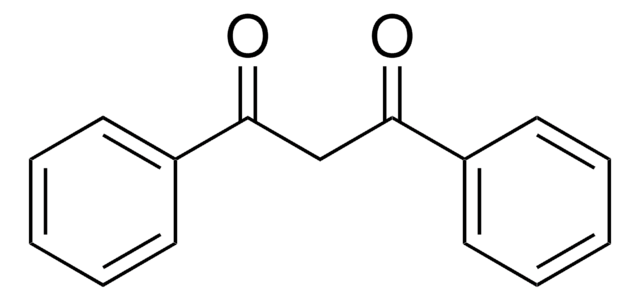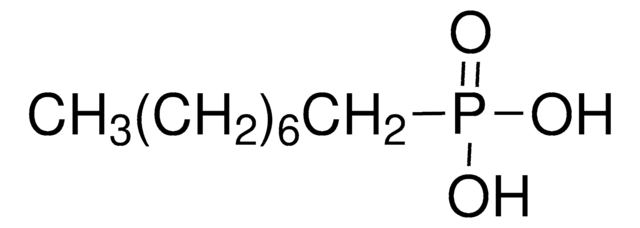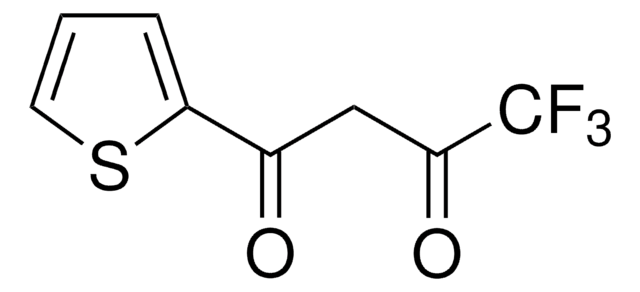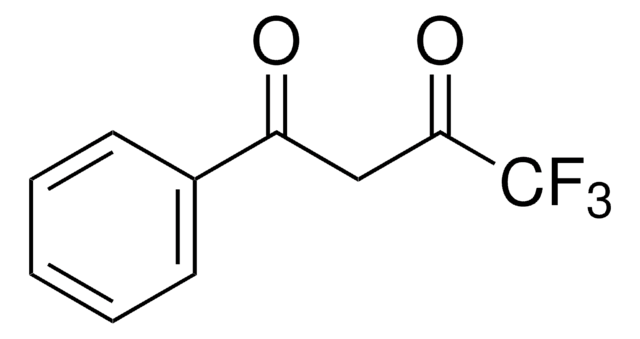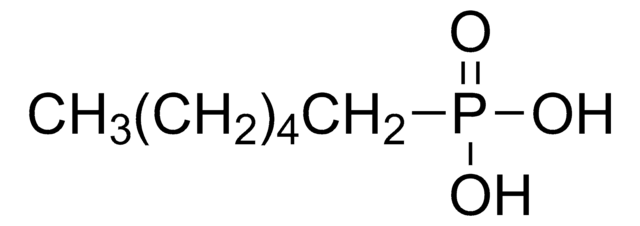223301
Trioctylphosphine oxide
ReagentPlus®, 99%
Synonym(s):
(Oct)3PO, TOPO®
About This Item
Recommended Products
Quality Level
product line
ReagentPlus®
Assay
99%
form
solid
reaction suitability
reaction type: Buchwald-Hartwig Cross Coupling Reaction
reaction type: Heck Reaction
reaction type: Hiyama Coupling
reaction type: Negishi Coupling
reaction type: Sonogashira Coupling
reaction type: Stille Coupling
reaction type: Suzuki-Miyaura Coupling
reagent type: ligand
bp
201-202 °C/2 mmHg (lit.)
mp
50-52 °C (lit.)
functional group
phosphine
SMILES string
CCCCCCCCP(=O)(CCCCCCCC)CCCCCCCC
InChI
1S/C24H51OP/c1-4-7-10-13-16-19-22-26(25,23-20-17-14-11-8-5-2)24-21-18-15-12-9-6-3/h4-24H2,1-3H3
InChI key
ZMBHCYHQLYEYDV-UHFFFAOYSA-N
Looking for similar products? Visit Product Comparison Guide
Related Categories
Application
Legal Information
Signal Word
Danger
Hazard Statements
Precautionary Statements
Hazard Classifications
Aquatic Chronic 3 - Eye Dam. 1 - Skin Irrit. 2
Storage Class Code
11 - Combustible Solids
WGK
WGK 3
Flash Point(F)
446.0 °F - closed cup
Flash Point(C)
230 °C - closed cup
Personal Protective Equipment
Choose from one of the most recent versions:
Certificates of Analysis (COA)
Don't see the Right Version?
If you require a particular version, you can look up a specific certificate by the Lot or Batch number.
Already Own This Product?
Find documentation for the products that you have recently purchased in the Document Library.
Customers Also Viewed
Articles
Solvothermal synthesis of nanoparticles: applications from nanocircuits and nano-optical circuits to nanomagnetics and biotech.
Our team of scientists has experience in all areas of research including Life Science, Material Science, Chemical Synthesis, Chromatography, Analytical and many others.
Contact Technical Service

